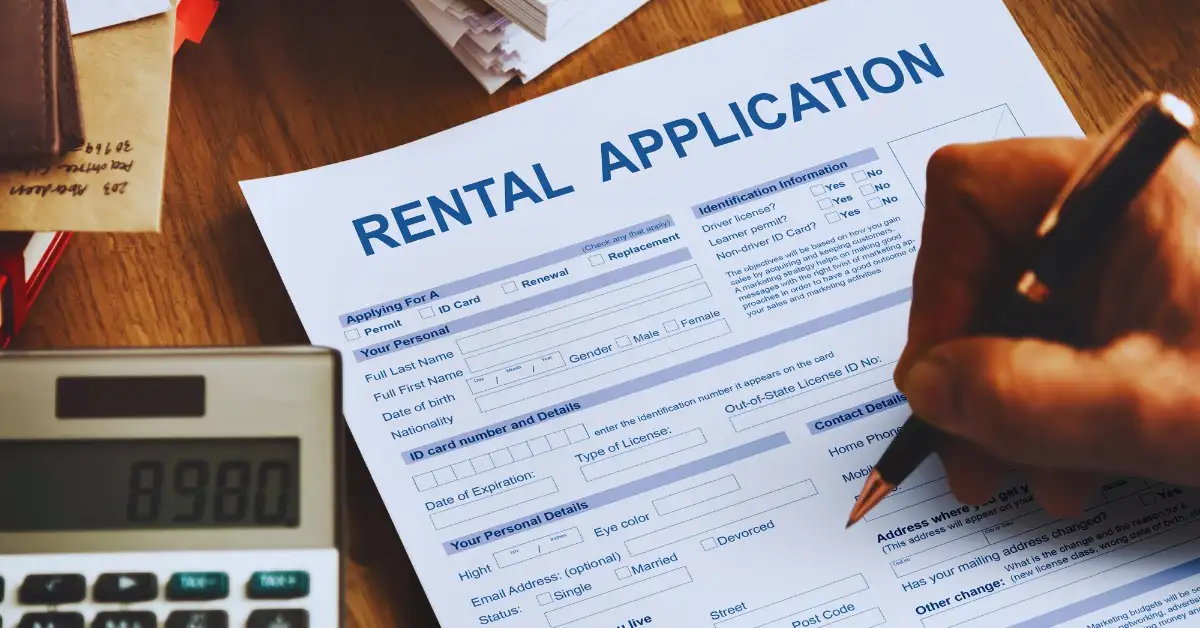Is It Bad to Lie on a Rental Application? Rental Awareness
Lying on a rental application is never a good idea. It can result in serious consequences such as eviction, loss of security deposit, and even legal action.
Providing false information can result in immediate eviction if discovered, and can also have long-term consequences such as difficulty renting in the future.
Landlords have the right to deny an application or terminate a lease agreement if they discover that the tenant provided false or inaccurate information.
It’s always better, to be honest upfront than to risk the potential consequences of lying on a rental application.

The Consequences Of Lying On A Rental Application
Renting an apartment or a house is a significant commitment. It requires not only financial responsibility but also honesty.

When it comes to completing the rental application form, honesty is imperative. Falsifying any information on your rental application can lead to serious consequences.
Let’s explore the legal implications, risks, and penalties involved, as well as some case studies that demonstrate the consequences of lying on a rental application.
Legal Implications Of Lying On A Rental Application
Lying on a rental application is not only ethically wrong, but it is also illegal. It can result in severe consequences, such as eviction and even a lawsuit.
If your landlord finds out that you have lied on your rental application, they may terminate your lease immediately.
If you are currently a tenant and your landlord discovers that you lied on your rental application at any point, they can terminate your lease even if it’s still active.
Risks And Penalties Involved
Here are some of the risks and penalties you might face if you lie on your rental application:
Eviction
If your landlord uncovers that you lied on your rental application, they have the right to evict you. This is a stressful and costly experience that can also impact your future rental prospects.
Lease Termination
Lying on your rental application may be deemed as a violation of your lease agreement, which can lead to early termination of the lease before your lease term is up.
Loss of security deposit
Depending on your lease agreement, your security deposit may be forfeited if you are evicted or your lease is terminated early.
Legal action
If your landlord decides to pursue legal action against you, you may face serious consequences beyond eviction.
This may include payment of damages, fines, or other legal action, such as a lawsuit.
Case Studies Of Individuals Who Lied On Rental Applications And Faced Consequences
There are countless examples of individuals who have faced consequences for lying on their rental applications. Here are a few:
Joe
Joe lied about his income and employment status on his rental application.
His landlord discovered this information, and Joe was evicted, lost his security deposit, and had to pay a fine for terminating his lease early.
Sue
Sue failed to disclose her previous eviction on her rental application.
Her landlord uncovered this information, and Sue was evicted, lost her security deposit, and had to pay a fine for breaking her lease.
Tom
Tom lied about having pets on his rental application, and his landlord found out after it was discovered that he damaged the property.
Tom was evicted, lost his security deposit, and had legal action taken against him for the damages.
Lying on a rental application is never worth the risks involved. Not only is it legally wrong, but it can also lead to severe consequences.
Honesty is always the best policy, and by being truthful on your rental application, you can secure a smooth and hassle-free rental experience.
The Impact Of Lying On A Rental Application
Finding the perfect rental property can be a daunting task, and with the pressure to secure a lease, some applicants may be tempted to stretch the truth on their applications.

This may seem like a harmless act, but the impact of lying on rental applications can be damaging, both for the applicant and the rental market as a whole.
Effects Of Lying On Landlords, Property Managers, And The Rental Market
- Lying on rental applications can cost landlords and property managers time and money. When an applicant provides false information, it can lead to delays in the screening process, and landlords may have to repeat the process with other potential tenants.
- It can also damage the applicants’ credit, as the landlord or property manager may report false information to credit agencies. This can affect the applicant’s ability to secure a lease in the future or obtain a loan for purchasing a property.
- Lying on rental applications can also give rise to legal implications. If one provides false information and is later discovered, the landlord or property manager has the right to terminate the lease agreement immediately.
- In the rental market, fake information on rental applications can lead to a lack of transparency and make it challenging for property managers or agents to trust applicants. This, in turn, can impact the tenants who provide genuine information, making it harder for them to secure rental properties in the future.
Importance Of Maintaining The Integrity Of Rental Applications
The importance of maintaining the integrity of rental applications cannot be overstated.
While it may be tempting to lie about applications, the consequences that come with it can far outweigh the benefits one may perceive.
- Property owners and managers rely on accurate information to maintain a safe and secure property. Lying on a rental application can compromise their efforts and even cause liability issues.
- It’s vital to understand that rental property owners, agents, or managers use rental applications to screen potential tenants. The accuracy of the information provided can determine if the applicant will be considered for the lease or not.
Ethical Considerations When Filling Out A Rental Application
It is essential to consider ethics when filling out a rental application, as honesty builds trust, and trust can lead to a good tenant-landlord relationship.
Here are some ethical considerations when filling out a rental application:
- Be truthful: Always provide accurate and complete information.
- Don’t hide anything: If there are any issues (e.g., credit scores, criminal records), be upfront, and use this as an opportunity to explain.
- Avoid exaggerating: Don’t exaggerate your income, job title, or responsibilities. Instead, provide accurate information, and let the landlord or the property manager assess if you meet the criteria for the property.
Frequently Asked Questions On Is It Bad To Lie On A Rental Application
Can You Get In Trouble For Lying On A Rental Application?
Yes, lying on a rental application is illegal and can result in serious consequences such as eviction, fines, and even legal action.
What Happens If A Landlord Finds Out You Lied On Your Rental Application?
If a landlord finds out that you lied on your rental application, they have the right to evict you and pursue legal action against you.
Is It Worth It To Lie On A Rental Application To Get Approved?
No, it is not worth it to lie on a rental application to get approved. The consequences of getting caught far outweigh any temporary benefits.
Are There Any Exceptions For Lying On A Rental Application?
No, there are no exceptions for lying on a rental application. Even small lies can lead to serious legal and financial troubles. It’s best to be honest and transparent.
Conclusion
Discover the truth; honesty triumphs when applying for rentals.
Skirting the rules with lies may entice you momentarily, but remember, it paves the path to serious consequences, compromising your credibility and your home.
Steer clear of shortcuts, for integrity is your best friend in this journey.